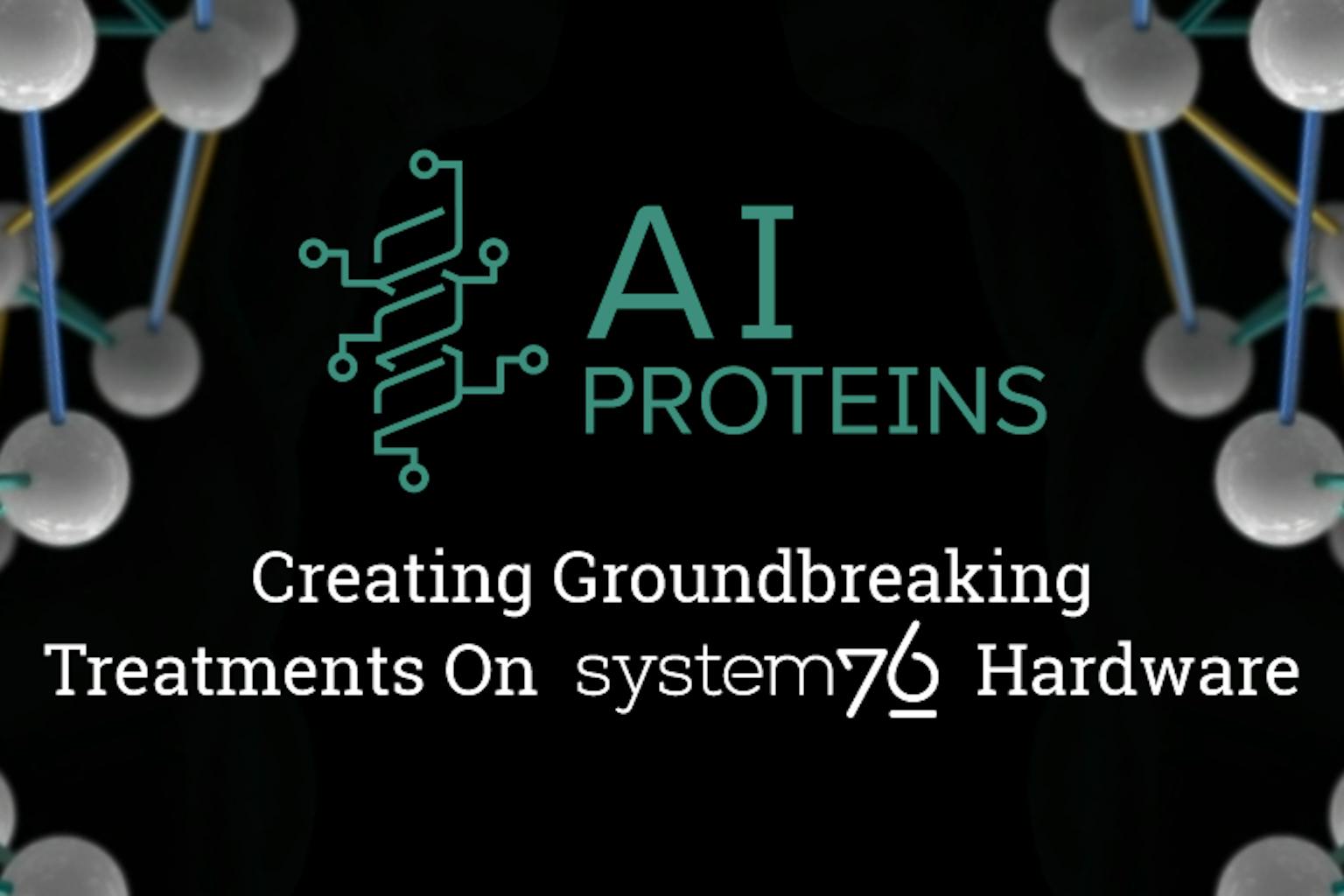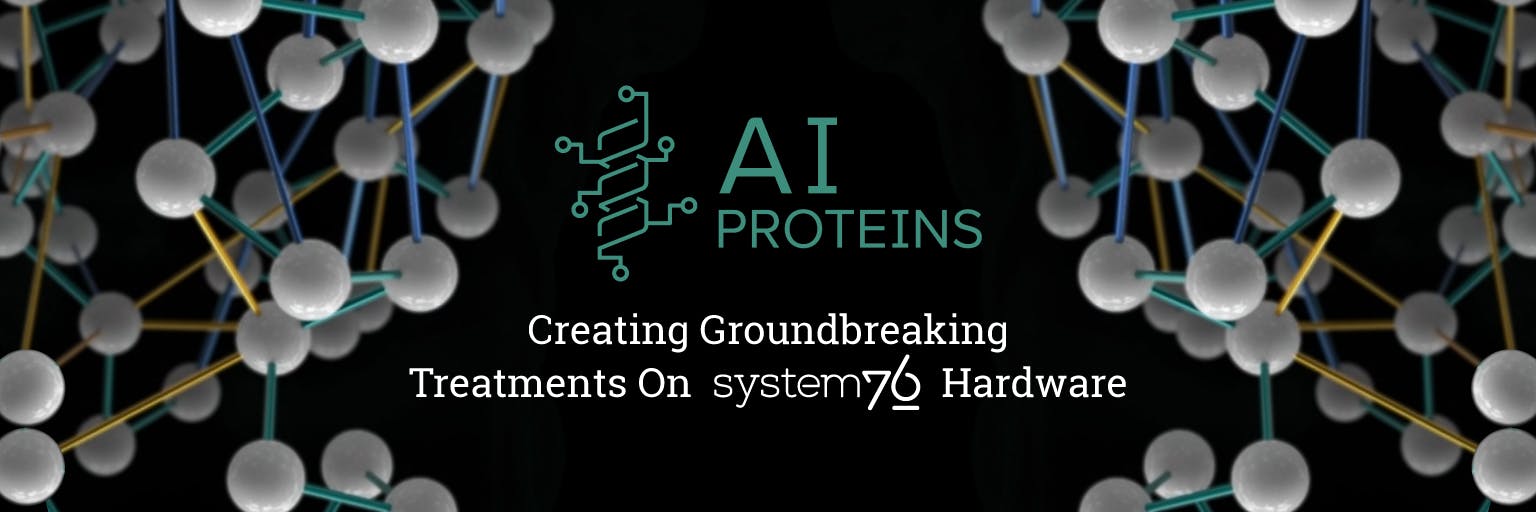AI Proteins: Creating Groundbreaking Treatments on System76 Hardware

Biotech company AI Proteins is at the forefront of revolutionizing medicine through the integration of artificial intelligence (AI) and protein design. They use AI to harness the power of synthetically designed proteins to cure diseases and potentially make medicine more affordable. We recently interviewed AI Proteins about their work and how they use System76 machines and Linux to transform the field of drug discovery.
At the heart of AI Proteins lies a groundbreaking approach called de novo protein design, which leverages the power of AI, synthetic biology, and automation. Unlike traditional protein-based therapies, which are derived from natural sources, de novo protein design allows the creation of entirely new molecules tailored for medicinal purposes. This level of control and precision offers a promising avenue for developing safer, more effective, and purpose-built medicines.
AI Protein’s vision is clear: to rapidly cure diseases and create accessible protein molecules that can benefit as many patients as possible. By combining cutting-edge technologies and building proteins from scratch, AI Proteins aims to develop safe, effective, and advanced therapies that are potentially within reach for all.
Chris Bahl, Co-founder, President and Chief Scientific Officer of AI Proteins, is enthusiastic about the impact of today’s breakneck pace of scientific advancement. “It’s an exciting time to be in scientific research. A true renaissance in all areas.”
From CPU to GPU: The evolution of AI research and its technical demands:
Much like the shape of a robot fundamentally dictates the function of that robot, a protein operates much in the same way. Deep learning approaches are able to observe a lot of different protein structures and infer how the shapes should go together.
To do this, we need very sophisticated algorithms. How this historically has been done is sort of a blend of physics and knowledge. We don't fully understand why proteins like to adopt these particular shapes, but we see bonds often have these angles for some reason, so we’d think, “let's just make an energy term that says that they should be in those angles.” And that was all done primarily on CPU and a combination of poorly understood physics and poorly understood observations mixed together. It wasn’t the most accurate.
This is where we start to train neural nets that will understand how to manipulate protein structures to get them to do new things and to create new protein structures as well. That obviously uses a lot more GPU. And this is the shift that we're seeing.
Folks might have heard about AlphaFold. It's this algorithm developed originally by DeepMind. That's really what kicked all of this off. By utilizing high-performance computing and deep learning techniques, researchers can train neural networks to understand and manipulate protein structures, accelerating the pace of discovery and innovation.
So…What’s Next?
The impact of this monumental shift in protein design cannot be overstated. The convergence of AI, synthetic biology, and automation is democratizing access to next-generation protein medicines, making them more affordable and accessible for everyone. AI Proteins is at the forefront of this transformative wave in biotechnology. With the ability to rapidly iterate protein structures, researchers can accelerate the development of life-saving treatments. This opens up boundless possibilities, propelling us into a new era of healthcare innovation.

Like what you see?
Share on Social Media